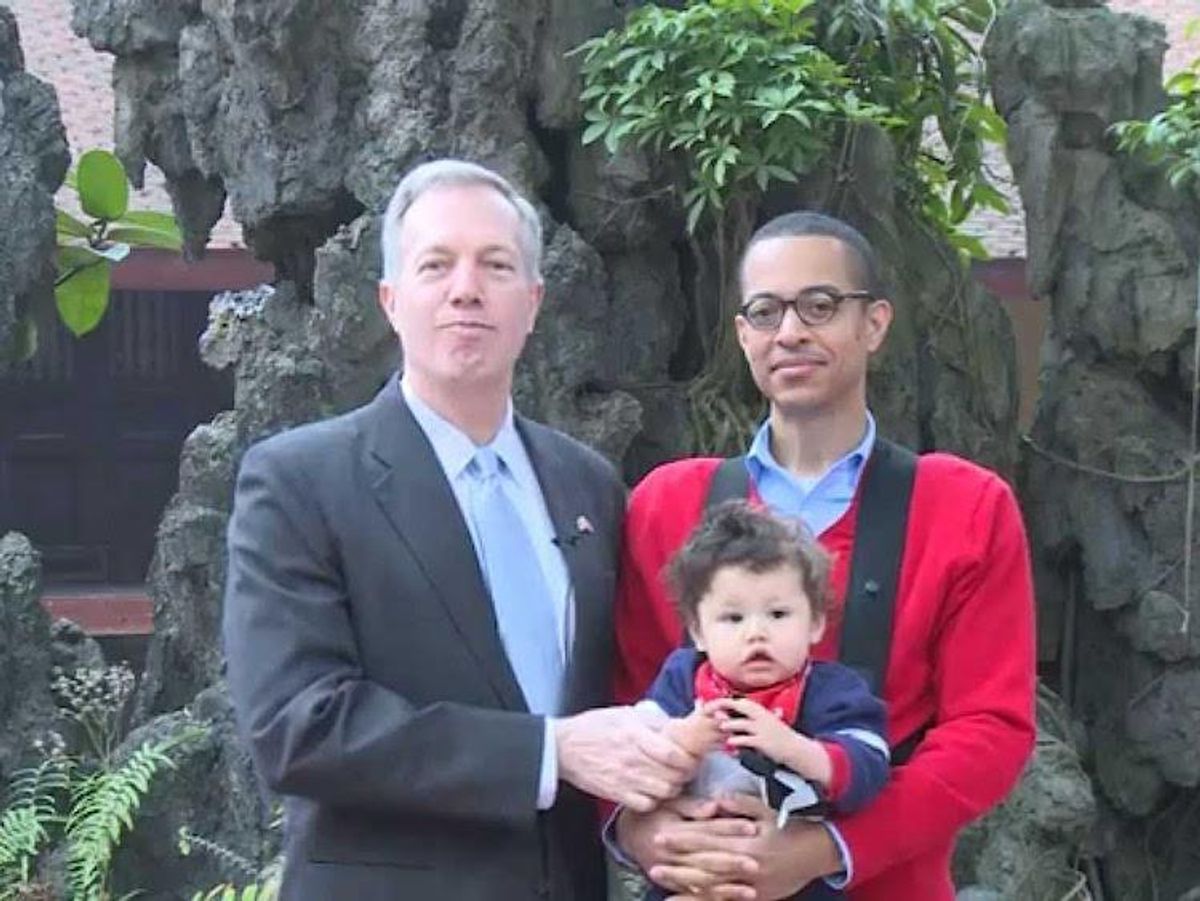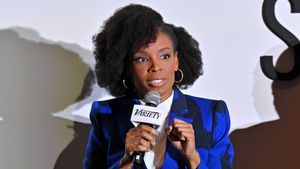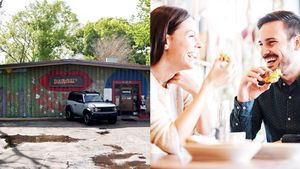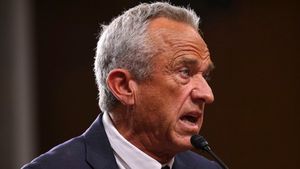Photo of Osius (left) and Bond via YouTube
U.S. Ambassador Ted Osius knows how important his post in Vietnam is for both countries since they share common economic and geopolitical goals after being former enemies. "Vietnam is trying to figure out what kind of country it wants to be and it doesn't want to be China," Osius told Bloomberg. "There is more openness. There is more inclusiveness in government."
Last year, before moving to his post in Hanoi, Osius told the Washington Blade: "No one then thought we could have ambassadors who were openly gay. We didn't think we could even get married, of course, 22 years ago. We certainly didn't think we could adopt children and we didn't think we could rise to the highest levels of our profession. It just wasn't possible." Currently, six openly gay U.S. ambassadors are stationed at posts, including Ambassador to Australia John Berry, Ambassador to Dominican Republic James Brewster, and Ambassador to Denmark Rufus Gifford.
Osius grew up in Annapolis, Md., and he joined the foreign service in 1989. He met Bond, who worked in the State Department's Bureau of African Affairs, at a monthly business meeting of Gays and Lesbians in Foreign Affairs Agencies (an organization that Osius co-founded) and the couple later married in Canada in 2006. Osius, whose most recent previous overseas post was at the U.S. Embassy in Indonesia, has spent the majority of his career in Asia, working in India, Thailand, the Philippines, and other countries. Osius and Bond arrived in Vietnam with their adopted son and recently adopted an infant girl.
According to Bloomberg, the couple will renew their vows before Supreme Court Justice Ruth Bader Ginsburg during her visit to Hanoi later this month, and they are already the most high-profile gay couple in the Southeast Asian country.
"A lot of young people have reached out to me on Facebook, to say: 'We are happy to see somebody who is gay and is happy in his personal life but also has had professional success,' " Osius said in the interview. "I don't think of it as advocating as much as supporting Vietnamese civil society in doing what it is already doing."

























































































